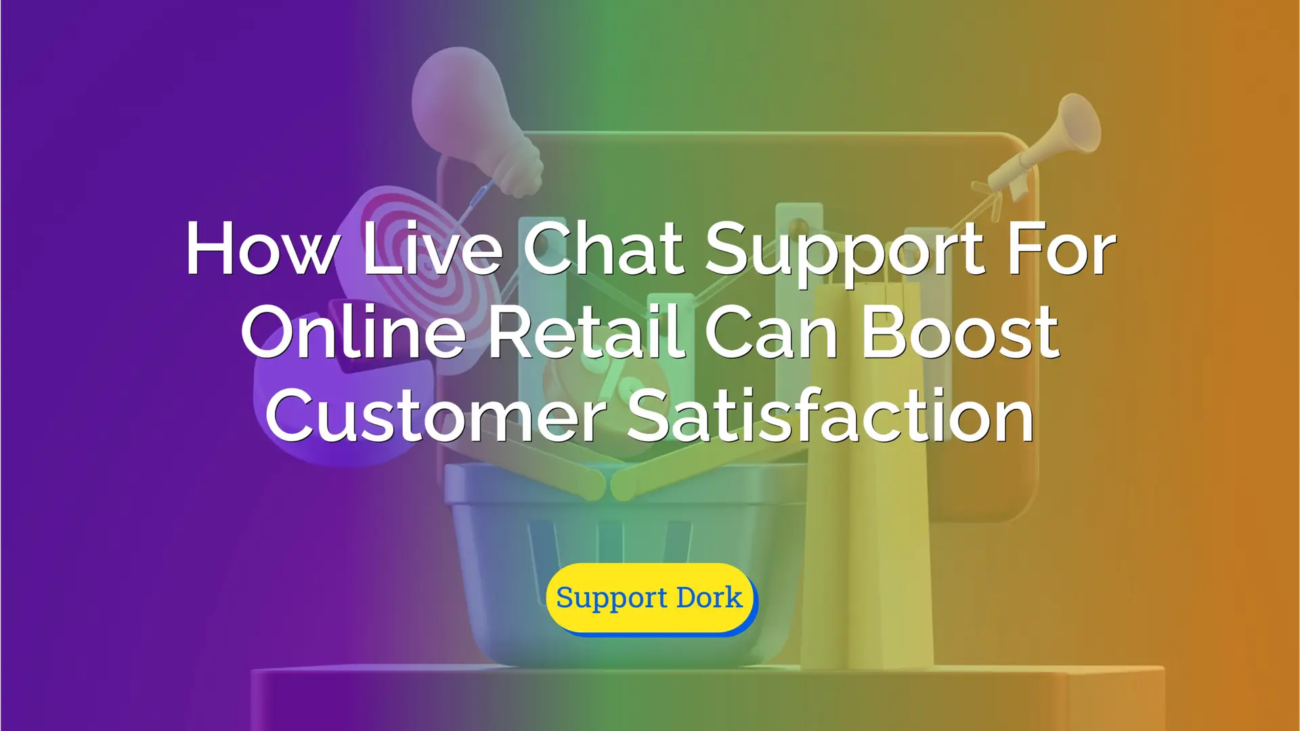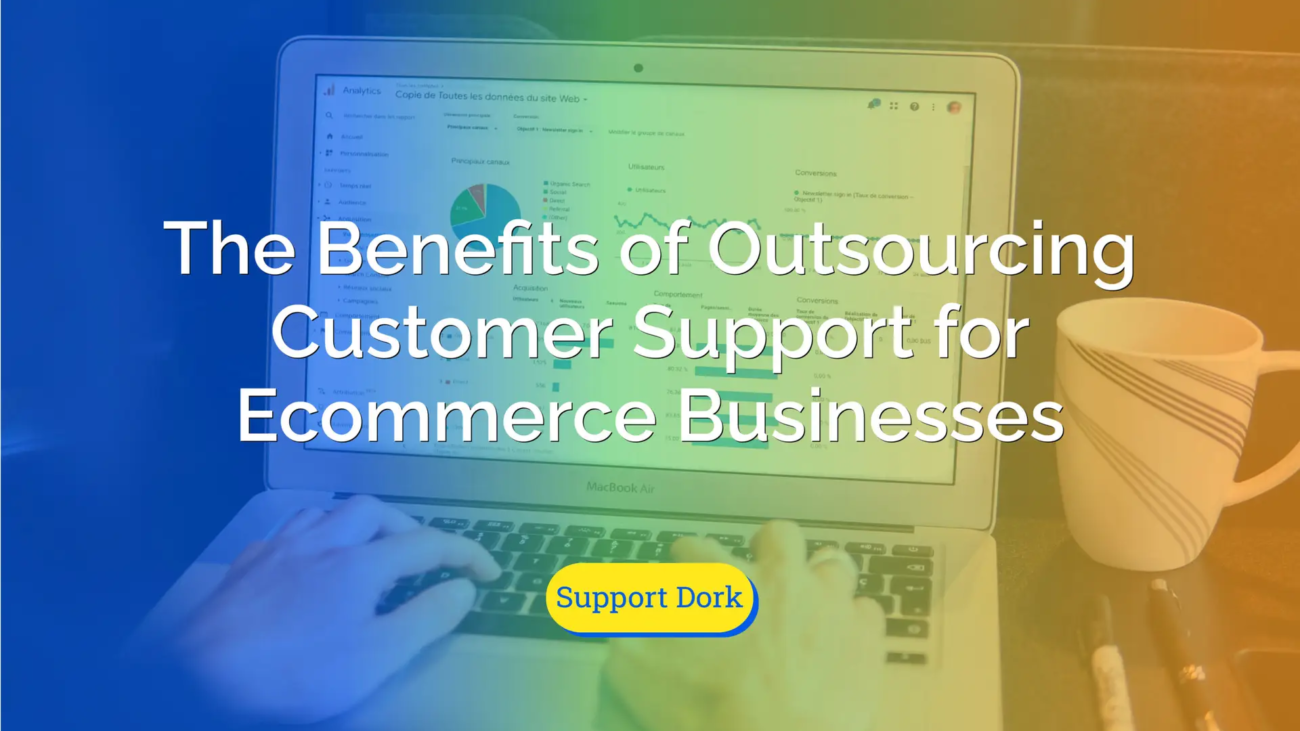In today’s fast-paced digital world, customers expect quick, convenient, and seamless support no matter where they are or what device they’re using. Providing support across multiple channels is a critical strategy for keeping your customers satisfied and engaged. Let’s explore how multichannel customer support can transform the customer experience, and how a partner like Support Dork can streamline your business’s customer support strategy.
Multichannel Customer Support Lets You Meet Customers Where They Are
The modern consumer uses a variety of communication channels—from phone and email to live chat, social media, and messaging apps. By offering multichannel support, you give customers the freedom to reach out through their preferred methods, increasing their comfort level and likelihood to engage with your brand.
Here are some channels your business should consider leveraging for a multichannel customer support strategy:
- Phone Support: Ideal for urgent or complex issues that require real-time conversation.
- Live Chat: Perfect for quick queries while customers browse your website.
- Email: Suited for more detailed inquiries that may involve attachments or extended back-and-forth discussions.
- Telegram Support: Telegram boasts an increasingly expanding user base, and offering customer support through Telegram can help you chat with your customers on their preferred messaging platform.
Support Dork’s services cover a wide range of these channels, making it easy for businesses to deploy a comprehensive support strategy without having to build everything in-house.
Reducing Customer Effort
A fundamental principle of customer satisfaction is minimizing the effort customers must expend to resolve issues. If your customers have to navigate multiple steps or long wait times to get help, they’re more likely to abandon their purchase or switch to a competitor.
Here’s how multichannel customer support can reduce customer effort:
- Unified Support Platform: When customers don’t have to repeat their issue multiple times, they feel heard and respected.
- Quick Escalation: Agents can swiftly move inquiries from a chatbot to phone or email for more complex problems.
Support Dork specializes in creating smooth handoffs between channels, ensuring that customers never have to explain their issue twice and can get resolutions quickly.
Consistent Brand Voice and Messaging
Offering support via multiple channels can inadvertently lead to inconsistent customer experiences, especially if different channels are managed by different teams or vendors. A strong, cohesive brand voice is essential to building trust and loyalty.
Here are some tips to maintain a consistent brand voice:
- Unified Knowledge Base: Ensures all support agents have access to the same resources, regardless of the channel.
- Standardized Training: Agents receive uniform training in tone, voice, and problem-solving approaches.
With Support Dork as your outsourced customer service partner, you can maintain consistent messaging across every channel. Their teams are trained to represent your brand’s values and style, whether interacting via phone, chat, email, or social media.
Gathering Valuable Customer Insights
Each customer support channel offers unique insights into customer behaviour and pain points. By managing support across multiple channels, you can collect a more comprehensive dataset. This allows you to identify trends, common issues, and opportunities for product or service improvements.
Here are some ways you can get valuable customer insights:
- Live Chat Transcripts: Reveal recurring questions about pricing or product features.
- Social Media Sentiment: Shows public perception and highlights brand advocates or critics.
- Email Analytics: Tracks response times, resolution rates, and common FAQs.
Support Dork helps centralize these insights through reporting and analytics, providing actionable data that can guide product development and marketing strategies.
Enhancing Accessibility and Global Reach
Multichannel support makes your business accessible to a global customer base. This is especially critical for ecommerce, SaaS, and other online industries with international reach.
Here’s how you can ensure your customer support efforts are helping you stay dialed in to your global customer base:
- 24/7 Coverage: Agents can rotate across different time zones for round-the-clock availability.
- Multilingual Support: Offering support in multiple languages increases trust and comfort for non-English-speaking customers.
By partnering with Support Dork, businesses can tap into a pool of trained agents who are available around the clock and can provide language support tailored to international audiences.
Building Stronger Customer Relationships
Customers remember exceptional support experiences. When they can reach your company easily – and receive quick, empathetic responses – they’re more likely to become repeat buyers, leave positive reviews, have a high NPS score, and recommend your brand to others.
Use the following to build stronger relationships with your customers:
- Proactive Outreach: Contacting customers via their preferred channel to address issues before they escalate.
- Personalized Follow-Ups: Sending thank-you messages or tutorials via email or chat after resolving a support ticket.
Whether you’re focusing on ecommerce, SaaS, or another industry, Support Dork provides the personalized touch that turns one-time customers into long-term advocates.
Streamlining Support Operations
While multichannel support offers numerous benefits, it can also become complex to manage if you don’t have the right infrastructure. A seamless operation ensures that agents aren’t overwhelmed and customers receive consistent service.
Here’s what you should consider to streamline operations
- Integrated Ticketing System: Consolidates inquiries from phone, chat, email, and social media in one place.
- Chatbot Automation: Handles routine tasks or FAQs, freeing human agents for more complex issues.
Support Dork’s outsourced services provide businesses with the technology and trained staff needed to efficiently handle multichannel interactions without overburdening internal teams.
Summarizing multichannel customer support
Multichannel customer support is about creating a cohesive, efficient, and customer-centric experience. By enabling customers to reach out on their own terms and ensuring consistency across channels, you significantly increase customer satisfaction and loyalty.
However, setting up and managing multichannel support can be resource-intensive. That’s where Support Dork steps in. By leveraging specialized expertise and advanced tools, Support Dork helps businesses of all sizes deliver exceptional support that resonates with modern, digitally-savvy customers. If you’re looking to enhance your customer experience without stretching your internal resources, consider partnering with a dedicated provider who understands what it takes to thrive in a multichannel world. Contact Support Dork today to learn how your business can benefit from outsourced customer support services.










